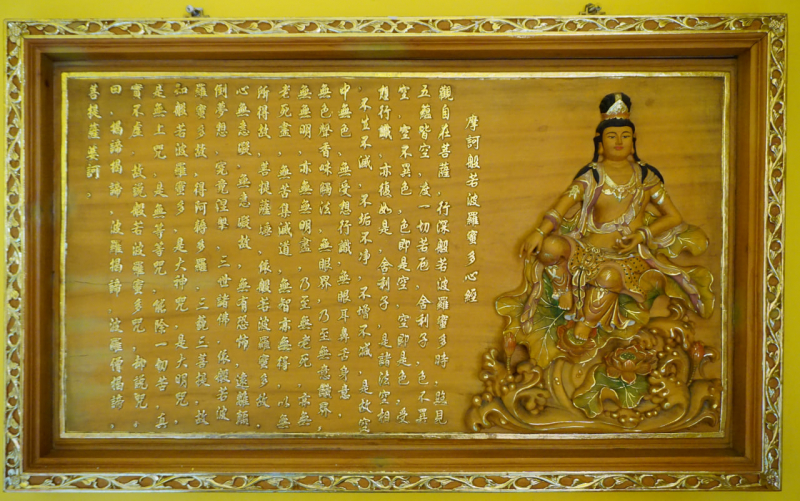Prajnaparamita Hridaya Sutra
The Prajnaparamita Hridaya Sutra, commonly known as the Heart Sutra, is one of the most well-known teachings in Mahayana Buddhism. It's part of a more extensive collection of teachings called the Heart Scripture literature, which explores the idea of empty things and the fundamental reality of everything. The sutra has only 14 short parts and is like a conversation between Shariputra and Avalokiteshvara.
The Prajnaparamita Hridaya Sutra says that everything practitioners see doesn't exist independently. It says that the way things look is like how emptiness looks, and the way emptiness is, is like how things look. This helps people think beyond their usual thinking and understand that everything is connected. At the end of the sutra, there's a special saying that shows what the sutra is the mantra. This saying is often repeated during Buddhist practices.
Even though the Prajnaparamita Hridaya Sutra is short, it's famous for being simply profound, quickly explaining complicated ideas. Many intelligent people and people who follow Buddhism have discussed it to understand it better. The Heart Sutra is essential to many Buddhist groups, especially in East Asia. People often say or sing it to become wiser, and its ideas have influenced the main ideas of different types of Buddhism.
The Prajnaparamita Hridaya Sutra, or Heart Sutra, is a small but powerful teaching in Mahayana Buddhism. It talks about emptiness, wisdom, and how things are all connected. It came from early Mahayana India, and it's set up like a conversation with a special saying at the end. People from different times and places find it interesting, and it encourages them to explore its profound ideas.











